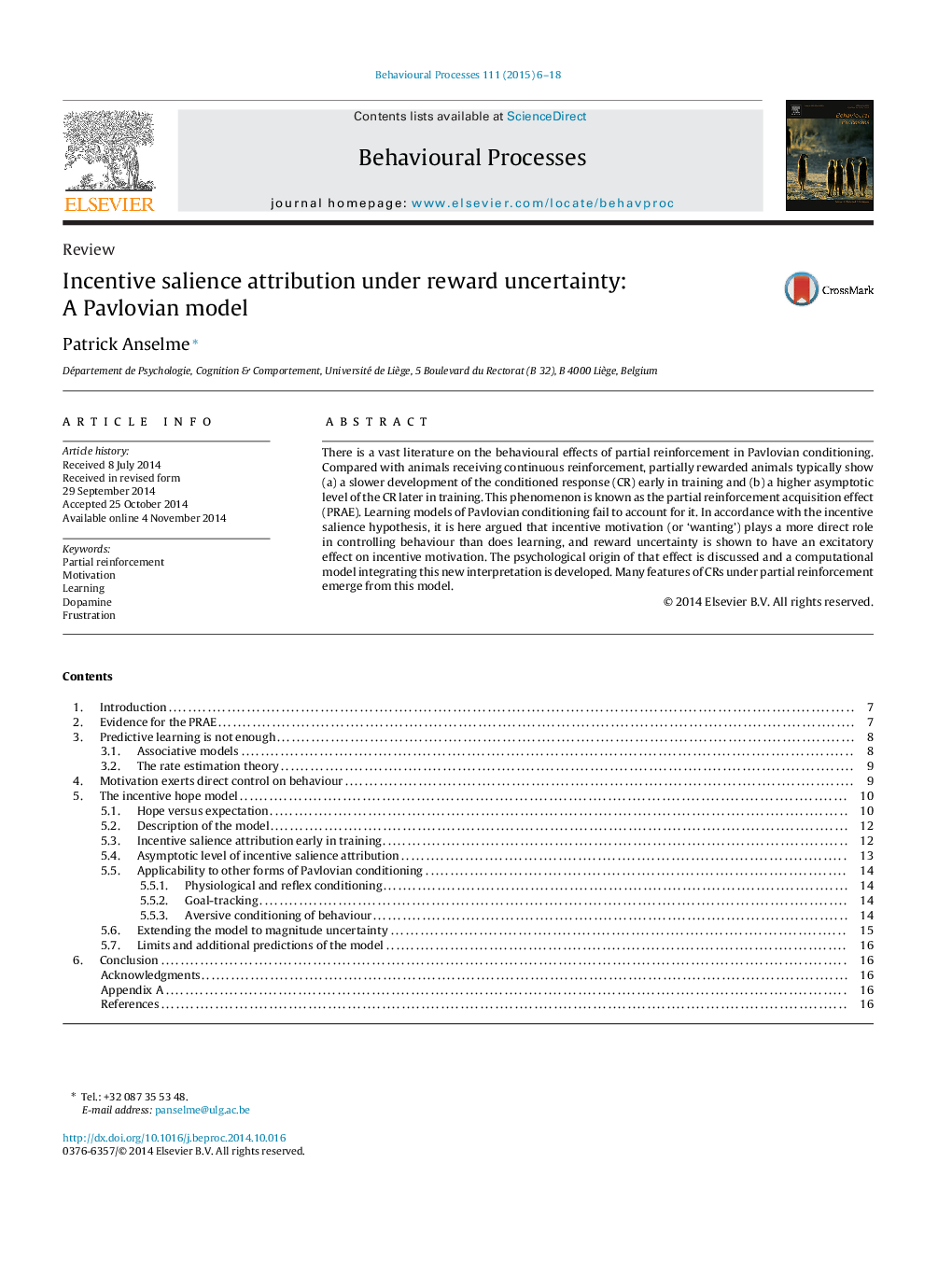| Article ID | Journal | Published Year | Pages | File Type |
|---|---|---|---|---|
| 8497179 | Behavioural Processes | 2015 | 13 Pages |
Abstract
There is a vast literature on the behavioural effects of partial reinforcement in Pavlovian conditioning. Compared with animals receiving continuous reinforcement, partially rewarded animals typically show (a) a slower development of the conditioned response (CR) early in training and (b) a higher asymptotic level of the CR later in training. This phenomenon is known as the partial reinforcement acquisition effect (PRAE). Learning models of Pavlovian conditioning fail to account for it. In accordance with the incentive salience hypothesis, it is here argued that incentive motivation (or 'wanting') plays a more direct role in controlling behaviour than does learning, and reward uncertainty is shown to have an excitatory effect on incentive motivation. The psychological origin of that effect is discussed and a computational model integrating this new interpretation is developed. Many features of CRs under partial reinforcement emerge from this model.
Related Topics
Life Sciences
Agricultural and Biological Sciences
Animal Science and Zoology
Authors
Patrick Anselme,
